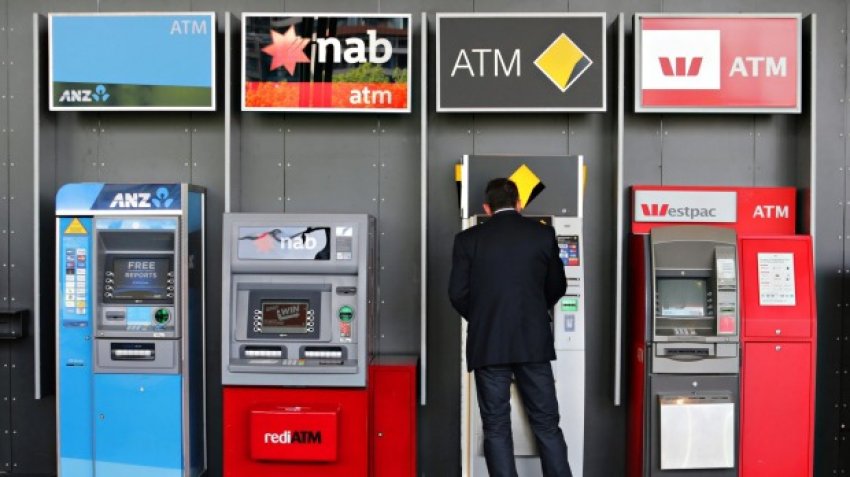
"Let's take the big banks head on over their crimes and their attempts to cover up their massive financial rip-offs, and nationalise them under workers' and community control," Peter Boyle, Socialist Alliance candidate for the seat of Sydney in the upcoming federal election, said on April 14. Boyle was responding to reports the banks were considering a huge advertising blitz against plans by the Greens and the Labor Party to launch a Royal Commission into the banking and finance sectors.
Bankers' association chief Steve Munchenberg refused to rule out a full-scale attack-advertising barrage, similar to the $22 million campaign against the then-Rudd Labor government's mining tax plan mounted by the mining industry in 2010, which eventually brought about the downfall of Rudd and his replacement by Julia Gillard as prime minister that year.
On April 8, Labor opposition leader Bill Shorten pledged a royal commission into the banking and finance industry if Labor won the coming federal election. Labor's proposed royal commission follows a series of scandals at the Commonwealth Bank and CommInsure, Macquarie Bank and National Australia Bank, and allegations by the corporate regulator, the Australian Securities and Investments Commission (ASIC), that the ANZ and Westpac rigged the bank bill swap rate.
"A royal commission into the banking and finance sector would need to be clearly targeted against the corporate bosses and their crimes, and not the workers who are employed by the banks," Boyle said. "It must seek to expose the rip-offs which are occurring daily, to customers of the big banks — including account holders, home mortgage payers, credit card debtors, and insurance policy claimants.
"It should not focus on bank workers, who are being pressured by bank management to sell dubious financial products to customers. Australia's Big Four banks are among the most profitable financial institutions in the world."
Finance Sector Union (FSU) national secretary Fiona Jordan agreed. She said: "When it comes to a royal commission, it should be looking at the culture of the corporations and the culture in relation to the sale of products, and the pressure put on employees within the organisation."
The FSU has for many years opposed the banks' practice of tying the payment of bonuses to sales targets for bank staff. Jordan said the FSU was "cautious" about supporting the royal commission proposal until the full terms of reference were clarified.
"A royal commission into the banks could play an important role in publicly exposing the facts about the profit-gouging of Australia's private financial sector. It could provide the evidence for charges to be brought against the banking moguls who profit from these crimes," Boyle said.
"But the labour movement will need to go well beyond the likely framework of an ALP-called royal commission, and campaign for the nationalisation (or re-nationalisation in the case of the CBA) of the entire banking and financial sector, under community and workers' control.
"One of the worst decisions of the previous Hawke-Keating Labor government in the 1990s was to privatise the Commonwealth Bank. If the CBA had remained in public hands, the financial position of the country's public sector would be much stronger than it is now, after years of neoliberal assault by governments of all persuasions.
"It is now time to launch a counteroffensive against privatisation and public sector cutbacks, and begin to take back the wealth and the people's assets that have been stolen by the big corporations over the past several decades.”
Meanwhile, the Greens have announced they will move a motion in the Senate in the week beginning April 18 to establish a royal commission into the banking sector in the near future. They are challenging Labor to support their motion and to begin the process of the public exposure of the big banks' crimes as soon as possible.
Claims by Prime Minister (and former merchant banker) Malcolm Turnbull and Treasurer Scott Morrison that ASIC is a "tough cop on the beat", with all the necessary powers of a royal commission to investigate the banks, have been criticised by prominent commentators. Even Professor Allan Fels, the former chair of the Australian Competition and Consumer Commission (ACCC), described ASIC as "too cautious" when it comes to pursuing wrongdoing by companies.
Commonwealth Bank whistleblower Jeff Morris dismissed a suggestion that the government may try to head off the royal commission proposal by instructing ASIC to conduct an inquiry into the banking industry as "ludicrous".
Morris tipped ASIC off to crimes and a cover-up within the CBA's financial planning arm. But it took ASIC 16 months to act on the information. "It's a ludicrous suggestion, that ASIC should investigate the past failings of ASIC," Morris said.
Boyle said: "The hypocrisy of the Coalition government is breathtaking, when we see that it wasted $50 million of taxpayers' money on the royal commission into the unions, to discover almost nothing, and now refuses to hold a full public probe into the well-known crimes of the big banks.
"This government blatantly protects and serves the big end of town, while threatening a double dissolution election over restoring the repressive, anti-worker Australian Building and Construction Commission (ABCC). Socialist Alliance pledges to fight this coming election over defence of the rights of workers and the people, as well as the environment, against the 1% and their government lackeys."
Like the article? Subscribe to Green Left now! You can also like us on Facebook and follow us on Twitter.